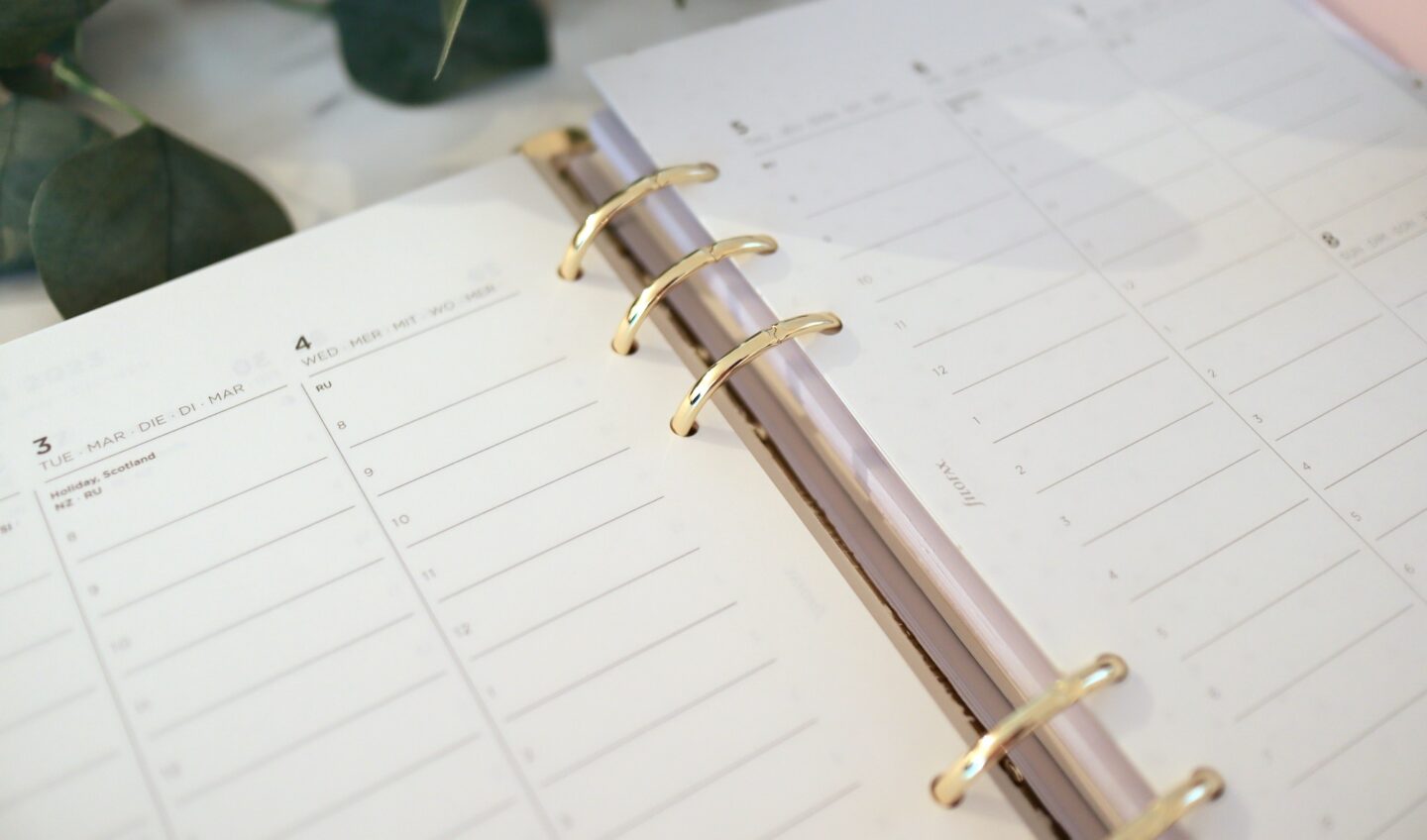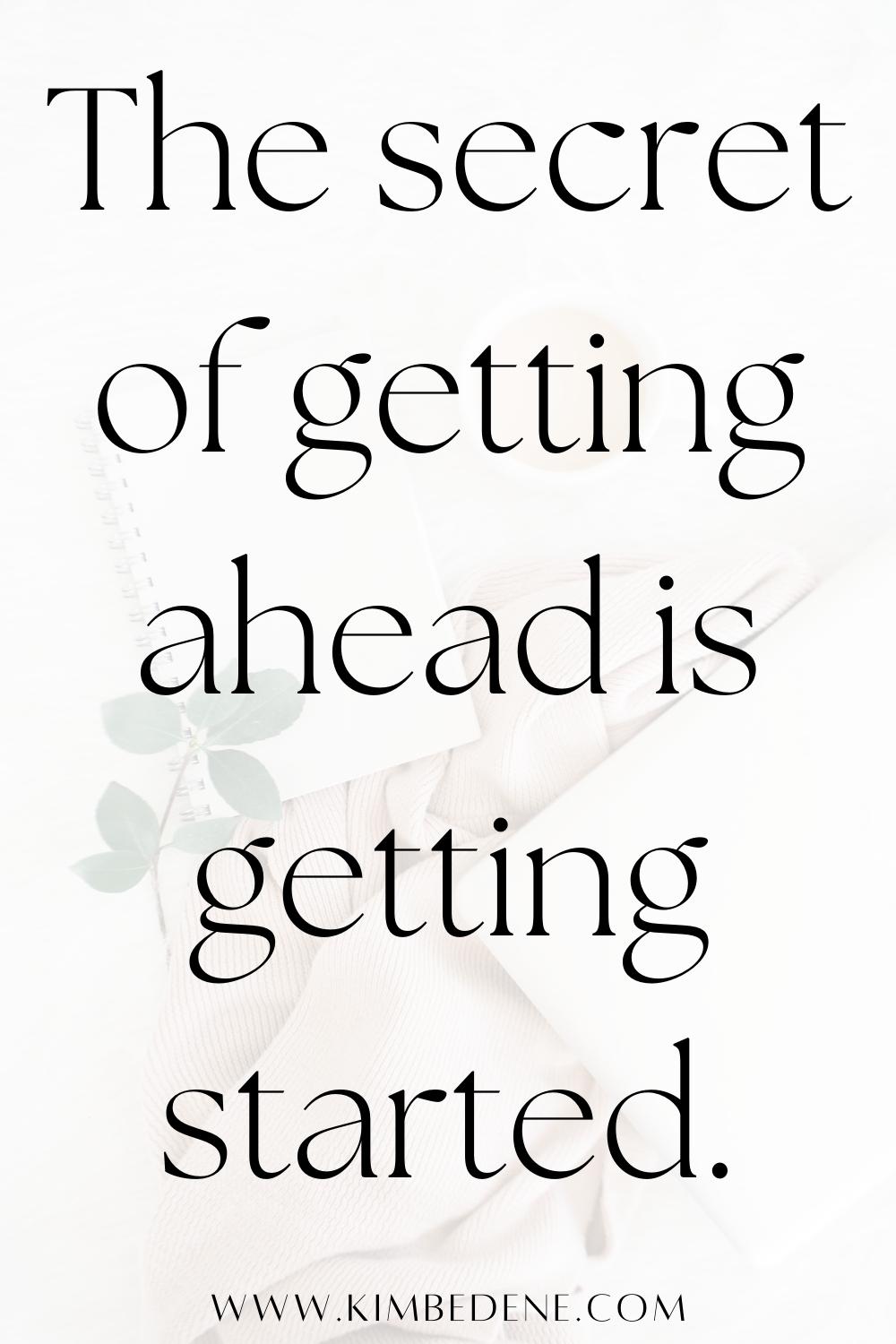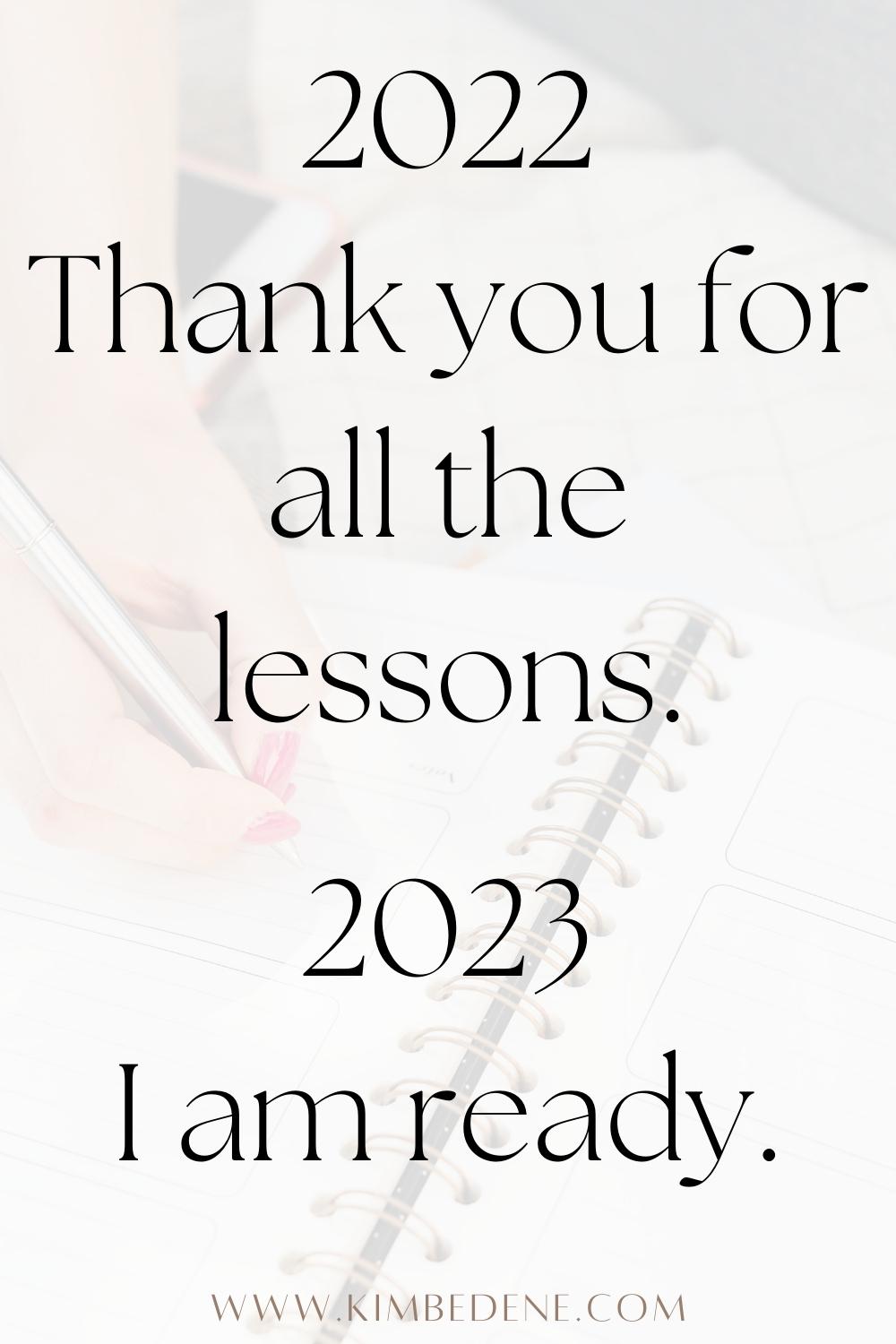We’re approaching the new year and I’m excited!
Even though I’m constantly setting my goals throughout the year, there is something about planning for the new year that makes it more magical than doing it on a random Saturday. But maybe that’s just me 😉
So I want to walk you through my process of setting my New Year’s resolutions to help you plan yours. I hope you like it!
And a quick note: I love planning and writing things down, so this process reflects that. But if you want to do things differently, then go for it 😉

1. I WRITE EVERYTHING DOWN
I start by writing all my goals I want to work on on a piece of paper. I don’t censor anything, I just let it all out.
To make sure I included all the important areas of my life, I continue by checking if I forgot any of my goals in other categories:
- mental health
- physical health
- social life
- love relationship
- joy & happiness
- learning
- career
- financial life
- home
- family
I gently think about each category to understand if I want to work on anything specific in this area.
Again, I don’t censor anything I simply write down whatever comes to mind.
2. I SORT THE GOALS INTO THREE DIFFERENT CATEGORIES
By being free and writing down any idea that comes to mind, my list can become a bit long. So to avoid being overwhelmed, I prioritise and select the most important goals.
I do that by sorting them into three different categories:
- The first category is most important goals I absolutely want to work on this year.
- The second category is goals that I would be happy to achieve this year, but only after I reach the most important ones.
- The third category is goals that I can leave for next year.
As far as the process goes, I simply write the number 1 or 2 or 3 next to the goal I have previously written down.
It’s very simple, but by doing this, I know exactly what are my priorities and where I would like to be at the end of 2020. And that takes me to the next point.
3. I START BUILDING THE PATH TOWARDS MY GOALS
Now that I know what I want to achieve, I have to build a game plan to get there. I do this by using 12 months as a guideline to build 12 goals/habits/projects that will get me there.
Why only 12?
Because I believe the biggest reason most New Year’s resolutions fail is that we feel like we have to change everything overnight.
But we know that doesn’t work. How many times have we gotten excited for a New year and the fresh start that it would bring us? With that in mind, we promised we’re going to become the best version of ourselves starting on January first. And we meant it!
But then, did we actually achieve our goals? And if we started, how long have we lasted? The answers are probably embarrassing.
That is why I only focus on one thing per month.

By going slowly, I can dedicate myself fully to each new project. Also, there is a bigger chance I’ll achieve my goals and stay focused the whole year instead of only the first two weeks in January.
The process again is straightforward: I do this by taking another piece of paper and writing down all 12 months on the left side so I can add my goals (habits/projects) on the right side.
*TIP: I recommend you write your goals in pencil so you can erase and adjust whatever you want. In the end, your whole year and habits or projects on there should make complete sense to you. Keep reminding yourself what you want to achieve at the end of the year to help you focus on truly important goals for yourself.
4. WHY AM I PICKING HABITS AND PROJECTS, INSTEAD OF GOALS?
Goals usually mean the end result.
But the problem is that we can’t always control the outcome, even if we do our absolute best. On the other hand, we can almost always control our input or our habits.
Example: If you want to lose five pounds or two kilos, can you really control that? You can do your best, but the answer is no. But if you decide that you want to exercise 3 times a week that is in your full control.
That doesn’t mean we can’t have an ideal outcome in our mind, quite the opposite – that can be a great source of motivation. Also, it’s good to have a clear idea of what we want in life.
But I found that our actions should be more focused on what we can control instead of what we can’t.
And if you want to learn more read the blog post on How to set your goals in order to achieve them.
But what if we need more than a month to achieve a particular goal? Then we can break it down into as many months as we think we’ll need.
Let’s say I want to improve my diet.
To successfully do that in a way the change would stick I reckon it would take me three months. So I break down my ‘eating healthy’ goal into three action steps that I stack on top of each other:
- The first habit might be to stop drinking sugary drinks and sodas and replace them with tea.
- The second month I might focus on changing my dinner for a salad or another healthy meal.
- And the third month I would stop eating processed or store-bought sugar.
This way, the success rate is much higher, and the chances of keeping up with the changes are too.
What if 12 months is not enough to fit in all of your number one goals? Then prioritise some more. You can repeat the process of sorting your goals into three different categories to gain even more clarity.
5. MAKE IT OFFICIAL
Once I’m happy with my decisions, I take my planner and I write my 12 actions steps down. This way, I have a visual reminder of what I want to work on and I don’t forget about my New Year’s resolutions.
*TIP: Don’t be afraid to change your goals if things change. Sometimes life might bring different opportunities and stuff happens, so if you feel you need to adjust your goals in the middle of the year, then do it. Goals are not meant to make you rigid anyway, they’re here to help you.

6. BONUS
Four biggest mistakes to look out for when setting your goals:
- Make sure your goals are yours! Don’t write down things simply because you think you should be doing them – either because society or someone you know says so. It’s your life, so listen to yourself and give yourself what you need.
- Conflicting goals: be sure your goals complement each other instead of creating additional stress for you. Let’s say you want to work on your career, but you also want to have a very active social life. Now, I’m not saying this is not possible, but usually, when we spend energy on something, it takes us away from something else. And that is not a bad thing; it’s just something to be aware of.
- Be realistic. I always ask myself if my goal is achievable on a lazy day or when I’m feeling down. If you pick goals that are too difficult, you have a bigger chance of giving up too early. That is why it’s better to do 5 minutes of daily meditation for 30 days, than five days of 30 minutes. Also, repeating certain actions will shape your identity, because you will start to see yourself as someone who meditates, even if it’s for a few minutes a day. And that in itself can be a powerful shift.
- Don’t forget to have fun! Goals mean nothing if you can’t wait to achieve them so you can relax. If you lose weight, but you’re miserable or if you earn extra money, but you’re burnt out, then it kind of defeats our purpose. If we look deeper at our goals, what we truly want is to be happy. So don’t sacrifice one part of your life for another because, in the end, you might achieve your goal, but you will not be happy. So watch how much fun you’re having on your way to achieving your goals to avoid feeling emotionally or physically depleted!

That’s it! This is a quick, but more structured approach to setting my goals, and I love it because it’s simple yet effective. My two favourite things 😉
If you enjoyed this post, I’d be very grateful if you’d help it spread by sharing it! Thank you 😉

I love these tips! I so agree with you that it’s important to welcome change as needed with goals, how important it is to set habits that go along with our goals, & creating goals that bring you happiness 🙂
Yes, goals should be focused on making us happy, not deprived and stressed! 😉